EVE Online: The Empyrean Age
Setting worlds on fire.
The latest update to the EVE universe has arrived in a blaze of in-game fiction and an ensuing bout of carnage that put the player-versus-player realms of other games to shame. The big change for this expansion is the faction warfare, which creates zones of conflicts between the four main non-player races, and allows players to fight across the border regions via new "militia" missions.
This is a patch for the framework of the game world, as much as anything else, and lacks the big New Stuff content additions of previous patches. There are only a couple of new ships, lots of fixes, and not much in the way of new toys. This is, however, one of the biggest alterations to how we play EVE that's been seen since Day One, and it's a great time for habitual players to change their habits, or lapsed players to return. Before we get to that, however, I want to do a little recap of EVE's PVP play, and talk about why the Empyrean age is an important step in rounding out that impossibly challenging aspect of the game.
It took me the best part of a year to get into EVE's combat, but I now struggle to find the same kick in any other game. For complexity it's on par with any other MMO, but for speed and action only FPS games really have any equivalence. I enjoy it almost because it is so demanding, so frustrating to lose and so satisfying to win. However, knowing how inaccessible EVE can be, I'm also acutely aware of just how daunting the journey is for new and inexperienced players
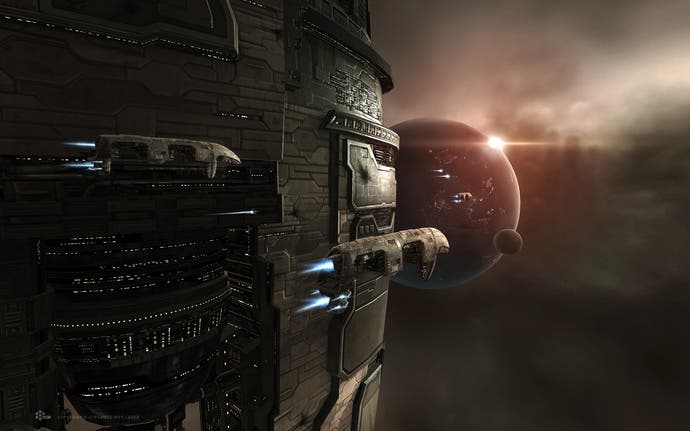
PVP is an aspect of EVE that really emphasizes how much this is a multiplayer game: you can't hope to learn the ins and outs of combat on your own, and figuring out how best to fly with a gang of other players is where some of the greatest pleasures in EVE lie. Many players, especially ex-players, tell tales of being killed without even an idea of how they might have escaped, and the game does little to explain this to its denizens. It has fallen to the player corporations, and organisations such as Eve Ivy, to try and teach new players what they're up against. What the Empyrean Age is supposed to do is provide another way in to PVP play, giving players who want to indulge in the safety of Empire play most of the time some way to explore the PVP side of the game.
At the very far end of the PVP scale from Empyrean age's tentative steps there are the vast fleet battles involving hundreds, even thousands, of pilots. These have been taking place since the early months of the game, and have now entered a mature phase in which only the major players can expect to compete. Worse, this spectacular endgame of territorial alliance warfare is both tricky to access and laborious, even for hardened players. Getting involved means making a big commitment to the player-run corporations, and demands on time and patience that many players simply can't afford. CCP realises this, and knows that the only way many gamers are going to feel comfortable with player-versus- player combat - which they regard as the spirit of their game - is if it's mediated in some way through the game architecture. That architecture is the missions provided by agents.
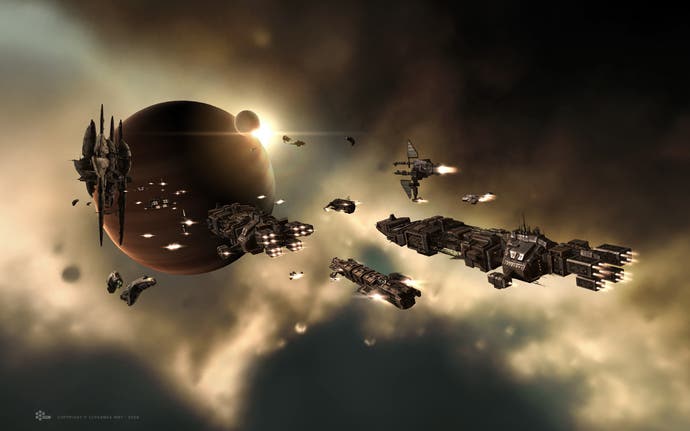
Previously, the missions dispensed by agents were "player versus environment" type stuff, fighting AI drones, or shipping stuff around the galaxy. Now, however, the militia agents in two hot-spot parts of the galaxy are providing tasks which will lead to players coming into conflict with each other, without the penalties normally associated with combat in these low security regions of space. The two regions (between Caldari and Gallente space, and between Minmatar and Amarr space) have solar systems that are "up for grabs", and the actions of the players in these regions will see the NPC sovereignty shift from one nation to another. If players are able to do enough to open up a system's "final mission", and the defenders fail to keep it from being overrun, the system changes hands at the next downtime - and the winning Empire gets a little bigger.


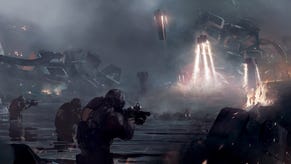
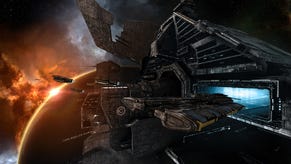

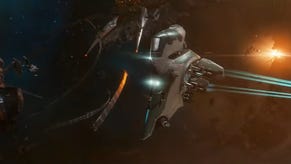
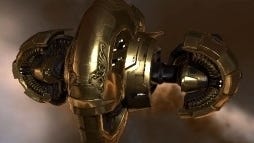
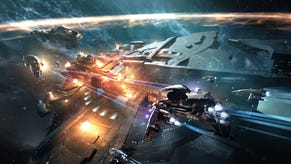



.png?width=291&height=164&fit=crop&quality=80&format=jpg&auto=webp)




.jpg?width=291&height=164&fit=crop&quality=80&format=jpg&auto=webp)